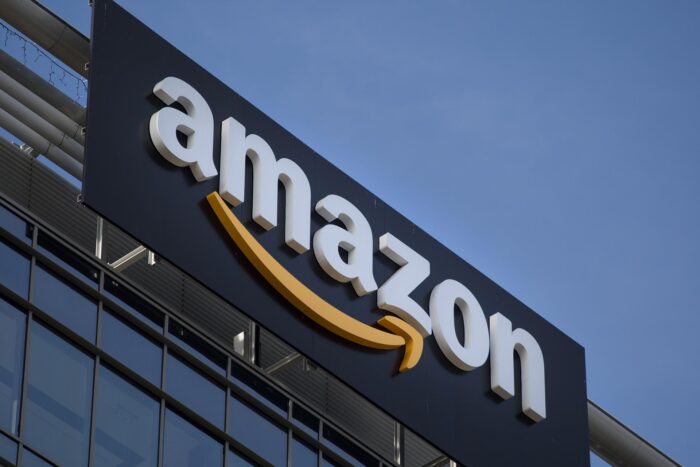Tech giants like Apple, Amazon, and Google have been enjoying monopoly power in many different ways. However, this has often come at the expense of both consumers and small businesses, leading to a clamour for legislation. With the possibility of antitrust laws on the way in the US, it may be worth examining how these laws might affect eCommerce and marketing.
What are Antitrust Laws
Antitrust law is legislation passed for the stated purpose of regulating business practices to ensure fair competition. They act as a way of improving competition within the market and preventing monopolization.
So, what are monopolies and trusts? Corporate entities that exhibit exorbitant power and stamp down on any competition become monopolies. A monopoly has to hold the majority of the market share and be able to dictate market forces to be deemed such. Unlawful monopolies are formed when the monopoly does not necessarily provide a better product but rather bottlenecks competition.
Similarly, a trust is a number of firms or economic actors that cartelize the market and dictate supply and prices. These entities can put a stranglehold on the market in conjunction, causing an unfair stranglehold over the market.
A monopoly can earn positive profits because it can choke the market and create barriers to entry. While perfect competition is not possible, some degree of choice is necessary to provide better options to consumers. The primary purpose of antitrust legislation is to clamp down on this hoarding of resources inherent to monopolies.
They come in a range of types. Some antitrust laws like the Sherman Act prevent contracts, combinations, and conspiracies that unreasonably restrain interstate and foreign trade. Conversely, the Clayton Antitrust Act targets mergers or acquisitions that are likely to lessen competition. Another act, the FTC Act, prohibits unfair methods of competition in interstate commerce.
Future US Legislation & Its Desired Impacts

Recently, the US announced the application of certain antitrust measures against American tech giants. Amazon has been under fire for the harmful effects it has had on the retail industry. While Amazon maintains that it has 5 percent of all retail sales in the United States, an eMarketer research study shows that 40 percent of all online retail sales are from the platform.
Biden’s antitrust aims may also target Amazon and Google’s data collection infrastructure. Many states have been targeting data collection practices for various reasons. This could have grave impacts on the digital marketing and eCommerce industries, particularly concerning recommendation algorithms for sites like Google and Amazon.
The EU has also taken a swing at tech monopolies and unfair practices. In terms of companies like Apple, antitrust laws could affect how they sell, buy, and arrange apps in their respective stores. Apple currently charges fees related to any purchase causing companies to raise prices or take in costs. As a result, companies like Netflix request users buy their apps elsewhere to evade the fees.
Another area antitrust legislation is targeting is hardware standards. Apple, for example, holds a monopoly over its ancillary hardware like chargers and cables. Legislation may hold companies to universal standards to prevent this type of monopolization.
The Application of Current US Antitrust Laws
Anti-monopolization measures are an unequivocal net benefit to society. That said, they run into several issues that make them less effective or even counter-productive.
Even though they are great in principle, many antitrust filings have little impact. The FTC, for example, carries no penalties and tech companies have been able to get around it unencumbered. Similarly, since the laws on the books are fairly old, companies in the US don’t fit the exact definitions laid out by precedent. Facebook, for example, argues it’s not a monopoly because other platforms exist, disregarding its immense reach and ability to dictate digital advertising trends and information.
However, the application of antitrust measures has also been massively beneficial in the past. The breaking up of Standard Oil in the 1910s by the US government is one great example. The result was fairer competition and distribution of resources. The US government also levied the Sherman Act against Microsoft, paving the way for a lot more competition within tech in the past.
While antitrust laws have been useful in the past, they have also had less than desirable effects sometimes. For example: in hindsight, was the Sherman antitrust act always successful in its stated purposes? No. In fact, it sometimes had the opposite effect as it also became a means for stamping down on trade unions.
What do Antitrust Laws Mean for Businesses?

These laws can alter the ways companies engage in eCommerce marketing and management. As mentioned previously, Amazon is a major source for all sorts of businesses.
Depending on the type of regulations levied on Amazon, digital marketing strategies that businesses implement may require changes. The current system on the platform gives Amazon a competitive advantage for eCommerce marketing and sales by putting its own products front and centre while diminishing the space for competitors in the buy box (which significantly impacts visibility).
The effect will largely depend on what type of antitrust action is taken. If the US government breaks up Alphabet or Apple, the app stores might change their policies in significant ways. If they impose rules to promote competition, the changes may be relatively minor (interface alterations to display a wider range of products, tweaks to the algorithm to reduce favouritism, pricing changes, etc.).
Breaking up Apple’s operations may be devastating to Apple’s competitive advantage. It would perhaps mean they have to alter their payment scheme giving other companies a fair spot. On the hardware side, the European Commission has also put forward plans to stop Apple from altering its charging ports and confine the company to a universal standard. This could make their own charger sales drop dramatically.
Impact on eCommerce Platform Users
In terms of digital marketing, some of the laws that curtail monopoly power could change things on Amazon. It could mean less competition with Amazon’s own products and a ban on the platform using insider data to bolster its operations. Laws may also prevent platforms from altering the pricing agreements with sellers. Currently, such agreements on Amazon prevent sellers from setting lower prices on other platforms.
Similarly, Amazon’s current mode of operations forces users to buy extra services that inflate prices. This gives Amazon’s own products an edge (products that are often copied from their competition). Legislation may be looking toward curbing this feature of the platform to foster a more competitive atmosphere.
Antitrust laws may also have implications for the data collection on eCommerce and social media platforms. Data gathering laws could affect the quality of the onboard marketing features (like analytics). Amazon is already looking to share data just to prevent the prospect of these laws being passed.
Overall, antitrust is necessary as the Internet is becoming increasingly cartelized. Smaller businesses have to pay quite a bit to the tech giants to operate efficiently on their platforms. However, as this article shows, antitrust laws can also have pitfalls and should be constructed with care.


